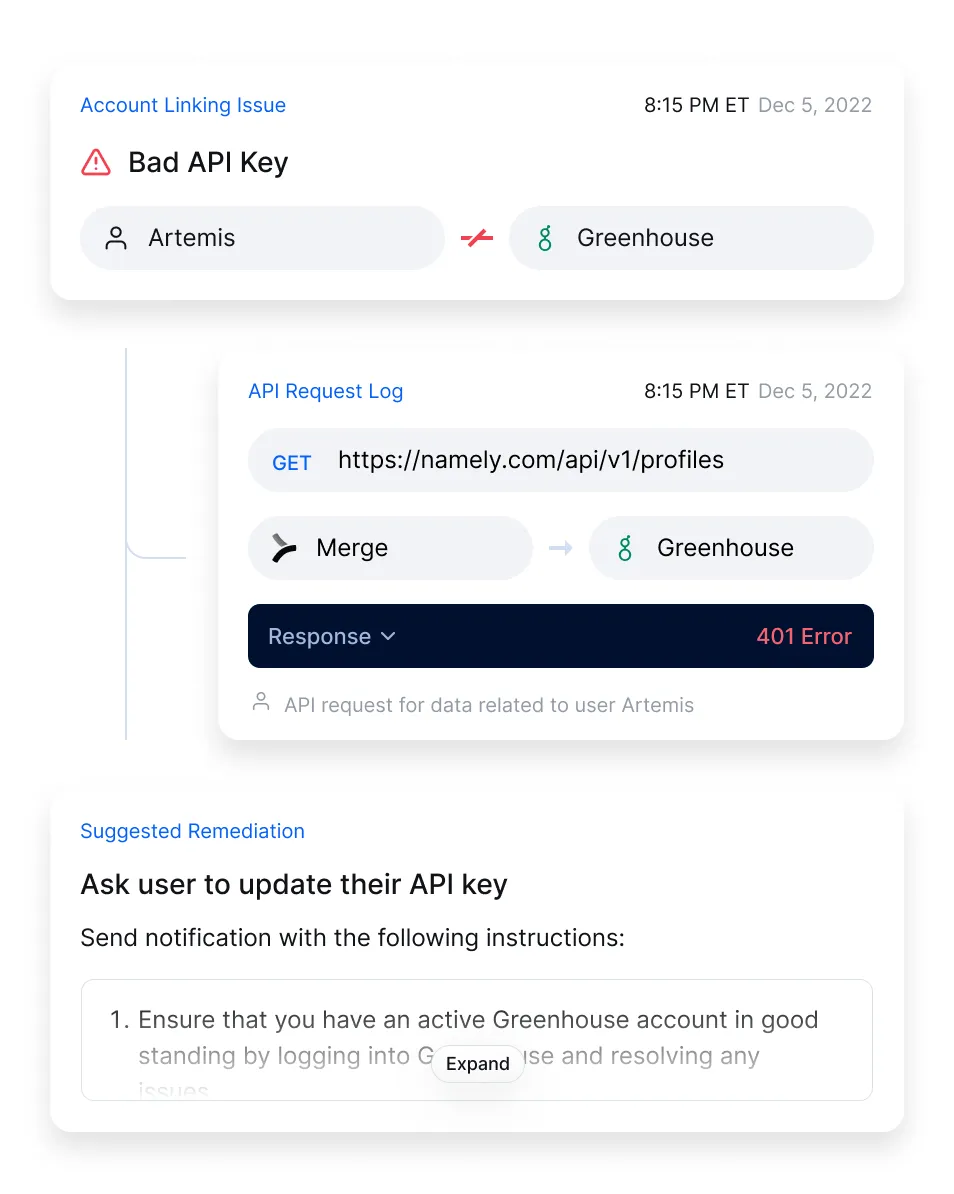Table of contents
5 alternatives to Merge

If you’re reading this, you’re likely already considering Merge—a unified API solution that’s used by thousands of organizations across industries, sizes, and regions—to add and maintain customer-facing integrations.
To help you evaluate the solution, it’s in your best interest to compare it to alternative options. Only then can you be fully confident that Merge (or one of the alternatives) will do the best job of meeting your integration requirements over time.
With this in mind, we’ll cover several Merge alternatives throughout this article.
Note: This article was written on 6/4/2024. All of the information presented below is subject to change in the future.
Workato
Among other offerings, Workato provides an embedded iPaaS that lets companies build and manage integrations and automations between their products and their customers’ applications.
What to consider when evaluating Workato
- Requires technical expertise: While the platform brands itself as a low-code/no-code solution, it often requires using custom code. In addition, understanding all the ins and outs of adding and modifying integrations in the platform will take your team (more specifically, your engineers) time
- Lack of sandbox accounts: Workato likely doesn’t have the sandbox accounts you need to test your integrations effectively. This can force you to take integrations that have significant issues to production, translating to a poor customer experience
- Difficult to scale: Workato forces you to build one integration at a time. This can compromise your ability to add integrations quickly over time

Related: Top alternatives to Workato
Finch
Finch is a unified API platform for HRIS and payroll systems. They offer both automated (API-based) and assisted integrations, allowing them to support integrations from more than 200 providers.
What to consider when evaluating Finch
- Narrow category coverage: Your integration requirements will likely extend beyond HRIS and payroll—if they don’t already. For instance, you may eventually have prospects or customers asking for ATS integrations, file storage integrations, CRM integrations, ticketing integrations, and so on. Since Finch is limited to HRIS and payroll, you’ll be forced to either build the integrations in these other categories internally or invest in another tool that supports them.
- Substandard security: Finch doesn’t offer scopes, or the ability to pick and choose the fields that are synced to Finch. As a result, Finch may end up syncing data that's unnecessary and highly sensitive (e.g., social security numbers). They also don’t have ISO 27001 certifications, highlighting their lack of robust security policies and practices
- Performance risks: Finch’s assisted integrations require a member of their team to manually log into one of your customer's applications to copy data and paste it into Finch. As a result, it may take a long time to sync data (e.g., at least a week), human errors may arise in the process, and security issues can occur

Paragon
Like Workato, Paragon offers an embedded iPaaS solution, which they brand as being for developers.
What to consider when evaluating Paragon
- Difficult to sync custom data: You need to build the functionality to read or write custom objects and fields in a given application, which is time intensive and requires developer involvement
- Poor go-to-market support: Paragon’s team doesn’t offer useful tactics and guidance for helping you take your integrations to market, whether that’s pricing the integrations, supporting them, marketing them, etc.
- Lack of observability capabilities: The platform doesn’t offer out-of-the-box tooling to identify and diagnose integration issues

Related: Popular Paragon alternatives
Kombo
Kombo is a relatively new (founded in 2022), EU-based unified API solution.
What to consider when evaluating Kombo
- Negligible integration observability support: Kombo only has logs from the past 24 hours, so it’s difficult to keep tabs on and manage the majority of syncs. The platform also doesn’t diagnose issues and fails to provide remediation steps for a given issue, forcing customers to build their own tooling for managing integrations
- Not a battle-tested product: The unified API solution has a relatively small set of customers, so they likely don’t have experience in solving edge cases and bugs—making their integrations less reliable than more mature solutions in the space
- Minimal category and integration coverage: The platform only covers two categories (HRIS and ATS) and fails to account for many core and long-tail integrations. As a result, Kombo will likely fall short of your product integration needs over time

Apideck
The unified API solution lets you add integrations across several categories (such as HRIS, CRM, and accounting) and offers an integration marketplace solution to help you display your integrations on your site.
Related: Apideck's top competitors
What to consider when evaluating Apideck
- Inadequate integration dashboard: The platform doesn’t provide comprehensive API logs, automated issue detection capabilities, and more to help you manage integrations successfully
- Integrations lack depth: Apideck’s unified APIs aren’t as comprehensive as other mature solutions in the space, meaning that you may not be able to access and sync as much data from a given integration compared to alternative solutions
- Unproven product: The company doesn't display successful results with several enterprise brands—at least publicly. This can hint that their unified APIs aren’t robust enough to support enterprise-scale integrations

{{this-blog-only-cta}}






.png)

.png)
